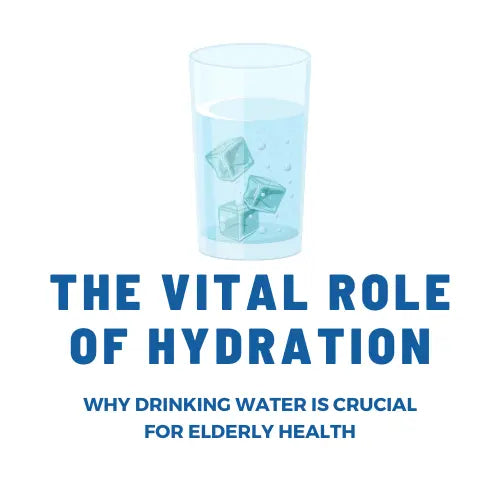As we age, our bodies undergo various physiological changes, making it imperative to prioritize certain aspects of our health. One of the most essential yet often overlooked factors is hydration. Adequate water intake becomes even more critical for elderly individuals due to the unique challenges they face. In this article, we'll explore why drinking water is of paramount importance for the elderly population and how contributes to their overall well-being.
Decreased Thirst Sensation
As we grow older, our ability to perceive thirst diminishes. This neural decline in thirst sensation can lead to inadequate fluid intake, putting elderly individuals at risk of dehydration. Dehydration can result in range of health complications, including urinary tract infections, kidney problems, and cognitive impairments. Regular water consumption helps offset this reduced thirst mechanism and ensures seniors maintain a healthy fluid balance.
Maintaining Physical Function
Proper hydration is vital for maintaining physical function in elderly individuals. Dehydration can lead to muscle cramps, fatigue, and a decline in mobility. Staying hydrated supports joint lubrication, which is especially important for seniors susceptible to joint pain and stiffness. Additionally, hydrated muscles are less prone to injury, enabling seniors to engage in activities that promote balance and strength.
Cognitive Function and Mental Clarity
Cognitive function and mental clarity are essential for maintaining independence and quality of life in the elderly. Studies have shown a direct link between dehydration and cognitive decline. Dehydrated individuals may experience difficulty concentrating, memory lapses, and mood disturbances. By ensuring consistent water intake, seniors can better preserve their cognitive abilities and overall mental well-being.
Temperature Regulation
Elderly individuals often struggle with temperature regulation due to age-related changes in their thermoregulatory systems. Dehydration exacerbates this issue, making seniors more susceptible to heat-related illnesses such as heatstroke. Adequate hydration helps regulate body temperature and reduces the risk of heat-related complications, particularly during hot weather or when engaging in physical activates.
Digestive Health
Digestive problems become more prevalent as we age, and dehydration can exacerbate these issues. Insufficient water intake can lead to constipation, a common problem among the elderly. Staying hydrated aids in maintaining healthy digestion, preventing constipation, and supporting gastrointestinal function.
Medication Management
Many seniors take multiple medications, some of which can lead to increased fluid loss through diuretic effects. Proper hydration helps mitigate the potential side effects of certain medications and ensures that the body can effectively process and eliminate these substances. Consulting with healthcare professionals about interaction between medications and hydration is crucial for elderly individuals.
In the journey of aging gracefully, staying hydrated is often underestimated yet essential component. The unique physiological changes that accompany aging underscore the importance of prioritizing water intake for elderly individuals. By maintaining proper hydration, seniors can preserve their physical health, cognitive function, and overall quality of life. Encouraging regular water consumption and incorporating hydrating foods can go a long way in promoting the well-being of our elderly loved ones. Remember ,a glass of water today con contribute to a healthier and more vibrant tomorrow.



